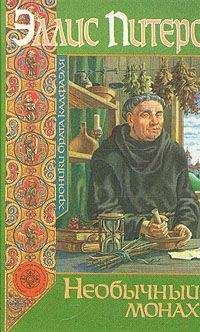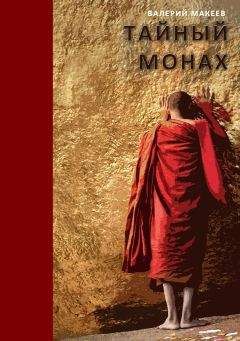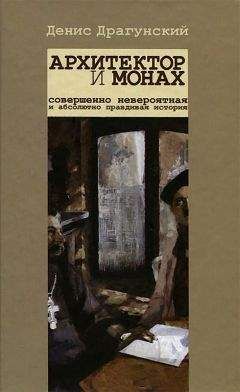Энтони Хоуп - Английский язык с Энтони Хоупом. Узник Зенды / Anthony Hope. The Prisoner Of Zenda
Accordingly at Zenda I got out, and as the train passed where I stood on the platform, I saw my friend Madame de Mauban in her place; clearly she was going through to Strelsau, having, with more providence than I could boast, secured apartments there. I smiled to think how surprised George Featherly would have been to know that she and I had been fellow travellers for so long.
I was very kindly received at the hotel – it was really no more than an inn – kept by a fat old lady and her two daughters. They were good, quiet people, and seemed very little interested in the great doings at Strelsau. The old lady’s hero was the duke, for he was now, under the late King’s will, master of the Zenda estates and of the Castle, which rose grandly on its steep hill at the end of the valley a mile or so from the inn. The old lady, indeed, did not hesitate to express regret that the duke was not on the throne, instead of his brother.
“We know Duke Michael,” said she (мы знаем герцога Михаэля). “He has always lived among us (он всегда жил среди нас); every Ruritanian knows Duke Michael (каждый руританин знает герцога Михаэля). But the King is almost a stranger (но король – почти чужак; stranger – незнакомец; чужестранец); he has been so much abroad (он так долго: «много» находился за границей), not one in ten knows him even by sight (что вряд ли даже один из десяти знает его в лицо; to know by sight – знать в лицо; sight – зрение; взгляд).”
“And now,” chimed in one of the young women (а теперь, – вмешалась одна из девушек: «одна из молодых женщин»; to chime in – вступать, вмешиваться в разговор; to chime – выбивать мелодию /на колоколах, курантах/; звонить, звенеть), “they say he has shaved off his beard (говорят, что он сбрил бороду), so that no one at all knows him (так что вообще никто его не узнает).”
“Shaved his beard!” exclaimed her mother (сбрил бороду! – воскликнула ее мать). “Who says so (кто говорит такое)?”
“Johann, the duke’s keeper (Иоганн, лесничий герцога; keeper – хранитель; лесник). He has seen the King (он видел короля).”
“Ah, yes (ах, да). The King, sir, is now at the duke’s hunting-lodge in the forest here (король, сэр, сейчас в охотничьем домике герцога здесь в лесу); from here he goes to Strelsau to be crowned on Wednesday morning (отсюда он поедет в Стрелсо, чтобы короноваться в среду утром).”
I was interested to hear this (мне было интересно это слышать), and made up my mind to walk next day in the direction of the lodge (и /я/ решил на следующий день прогуляться в направлении /этого/ домика; mind – ум, разум; намерение, желание; to make up one’s mind – решить/ся/), on the chance of coming across the King (надеясь повстречать короля; to come across – случайно встретиться с /кем-л./; on the chance – на случай, если; в надежде).
“We know Duke Michael,” said she. “He has always lived among us; every Ruritanian knows Duke Michael. But the King is almost a stranger; he has been so much abroad, not one in ten knows him even by sight.”
“And now,” chimed in one of the young women, “they say he has shaved off his beard, so that no one at all knows him.”
“Shaved his beard!” exclaimed her mother. “Who says so?”
“Johann, the duke’s keeper. He has seen the King.”
“Ah, yes. The King, sir, is now at the duke’s hunting-lodge in the forest here; from here he goes to Strelsau to be crowned on Wednesday morning.”
I was interested to hear this, and made up my mind to walk next day in the direction of the lodge, on the chance of coming across the King.
The old lady ran on garrulously (пожилая дама словоохотливо продолжала; to run on – говорить не переставая; garrulous – болтливый, словоохотливый):
“Ah, and I wish he would stay at his hunting (ах, и было бы здорово: «хотелось бы», чтобы он задержался на охоте) – that and wine (and one thing more) are all he loves, they say (это = охота, вино (и еще кое-что: «одна вещь») – вот все, что он любит, как говорят) – and suffer our duke to be crowned on Wednesday (и позволил бы нашему герцогу короноваться в среду; to suffer smb. to do smth. – позволить кому-л. сделать что-л.). That I wish, and I don’t care who knows it (вот чего я желаю, и мне безразлично, кто об этом знает).”
“Hush, mother!” urged the daughters (тише, мама! – уговаривали /ее/ дочери; to urge – понуждать, подгонять; убеждать, уговаривать).
“Oh, there’s many to think as I do (о, многие думают, как я)!” cried the old woman stubbornly (упрямо восклицала пожилая женщина).
I threw myself back in my deep armchair, and laughed at her zeal (я откинулся /на спинку/ своего глубокого кресла, смеясь над ее энтузиазмом).
“For my part,” said the younger and prettier of the two daughters (что касается меня, – сказала младшая и самая привлекательная из двух дочерей; for my part – с моей стороны; что касается меня; pretty – хорошенький, миловидный), a fair, buxom, smiling wench (белокурая, пышногрудая, улыбающаяся девица; fair – честный, справедливый; белокурый, светлый; wench – девчонка /о девушке/, молодая женщина /шутл./), “I hate Black Michael (я не переношу/ненавижу Черного Михаэля)! A red Elphberg for me, mother (/а вот/ рыжий Эльфберг – /это/ по мне, мама)! The King, they say, is as red as a fox or as (король, говорят, такой же рыжий, как лисица, или как) – ”
And she laughed mischievously as she cast a glance at me (и она засмеялась, бросив на меня озорной взгляд; mischievous – вредный; озорной, шаловливый), and tossed her head at her sister’s reproving face (и вскинула головку, /заметив/ осуждающее выражение лица своей сестры; to reprove – делать выговор, корить; осуждать, не одобрять; face – лицо; выражение лица).
“Many a man has cursed their red hair before now,” muttered the old lady (не один мужчина уже проклял их рыжие волосы, – пробормотала пожилая дама; before now – раньше, прежде) – and I remembered James, fifth Earl of Burlesdon (и я вспомнил Джеймса, пятого графа Берлисдона).
The old lady ran on garrulously:
“Ah, and I wish he would stay at his hunting – that and wine (and one thing more) are all he loves, they say – and suffer our duke to be crowned on Wednesday. That I wish, and I don’t care who knows it.”
“Hush, mother!” urged the daughters.
“Oh, there’s many to think as I do!” cried the old woman stubbornly.
I threw myself back in my deep armchair, and laughed at her zeal.
“For my part,” said the younger and prettier of the two daughters, a fair, buxom, smiling wench, “I hate Black Michael! A red Elphberg for me, mother! The King, they say, is as red as a fox or as – ”
And she laughed mischievously as she cast a glance at me, and tossed her head at her sister’s reproving face.
“Many a man has cursed their red hair before now,” muttered the old lady – and I remembered James, fifth Earl of Burlesdon.
“But never a woman!” cried the girl (но ни одна женщина, – воскликнула девушка).
“Ay, and women, when it was too late,” was the stern answer (да, и женщины, когда было /уже/ слишком поздно, – последовал строгий ответ), reducing the girl to silence and blushes (заставивший девушку замолчать и покраснеть; to reduce – понижать, уменьшать; приводить в определенное состояние).
“How comes the King here (как же король приезжает сюда)?” I asked, to break an embarrassed silence (спросил я, чтобы прервать неловкое молчание; to break – ломать, разрушать; прерывать, нарушать; to embarrass – смущать, приводить в замешательство). “It is the duke’s land here, you say (это же земля герцога, вы говорите).”
“The duke invited him, sir, to rest here till Wednesday (герцог пригласил его, сэр, отдохнуть здесь до среды). The duke is at Strelsau, preparing the King’s reception (герцог /сейчас/ в Стрелсо готовится к встрече короля; reception – прием, получение; встреча, прием /гостей и т. п./).”
“Then they’re friends (выходит, они друзья)?”
“None better,” said the old lady (лучше нет, – сказала пожилая дама).
But my rosy damsel tossed her head again (но моя румяная девица снова вскинула голову); she was not to be repressed for long (она не могла сдерживаться долго; to repress – подавлять; сдерживать /чувства/), and she broke out again (и снова разразилась /тирадой/; to break out – вырываться; разразиться):
“Ay, they love one another as men do (ой, они любят друг друга так, как любят люди) who want the same place and the same wife (которым нужны одна и та же должность и одна и та же женщина; to want – хотеть, желать; испытывать потребность /в чем-л./; place – место; положение, должность, пост; wife – жена, супруга; женщина)!”
The old woman glowered (мать сурово /на нее/ взглянула); but the last words pricked my curiosity (но последние слова подстрекнули мое любопытство; to prick – колоть, прокалывать; подстрекать, побуждать), and I interposed before she could begin scolding (и я вмешался прежде, чем она смогла начать бранить /дочь/; to interpose – ставить, помещать /что-л./ между /чем-л./):
“What, the same wife, too (что, одна и та же женщина тоже)! How’s that, young lady (как так, юная леди)?”
“All the world knows that Black Michael – well then, mother, the duke (весь мир знает = всем известно, что Черный Михаэль – ну хорошо, мама, герцог) – would give his soul to marry his cousin, the Princess Flavia (отдал бы душу, чтобы жениться на своей кузине, принцессе Флавии), and that she is to be the queen (и что она должна стать королевой).”
“But never a woman!” cried the girl.
“Ay, and women, when it was too late,” was the stern answer, reducing the girl to silence and blushes.
“How comes the King here?” I asked, to break an embarrassed silence. “It is the duke’s land here, you say.”
“The duke invited him, sir, to rest here till Wednesday. The duke is at Strelsau, preparing the King’s reception.”
“Then they’re friends?”
“None better,” said the old lady.
But my rosy damsel tossed her head again; she was not to be repressed for long, and she broke out again:
“Ay, they love one another as men do who want the same place and the same wife!”
The old woman glowered; but the last words pricked my curiosity, and I interposed before she could begin scolding:
“What, the same wife, too! How’s that, young lady?”
“All the world knows that Black Michael – well then, mother, the duke – would give his soul to marry his cousin, the Princess Flavia, and that she is to be the queen.”
“Upon my word,” said I (честное слово, – сказал я), “I begin to be sorry for your duke (я начинаю сочувствовать вашему герцогу; to be sorry for smb. – жалеть /кого-л./). But if a man will be a younger son (но если человек является младшим сыном), why he must take what the elder leaves (с какой стати он должен брать то, что оставляет старший), and be as thankful to God as he can (да еще и вовсю благодарить Бога: «и благодарить Бога так, как он может»);” and, thinking of myself, I shrugged my shoulders and laughed (и подумав о себе, я пожал плечами и усмехнулся). And then I thought also of Antoinette de Mauban and her journey to Strelsau (а потом я подумал также и об Антуанетте де Мобан и ее поездке в Стрелсо).




